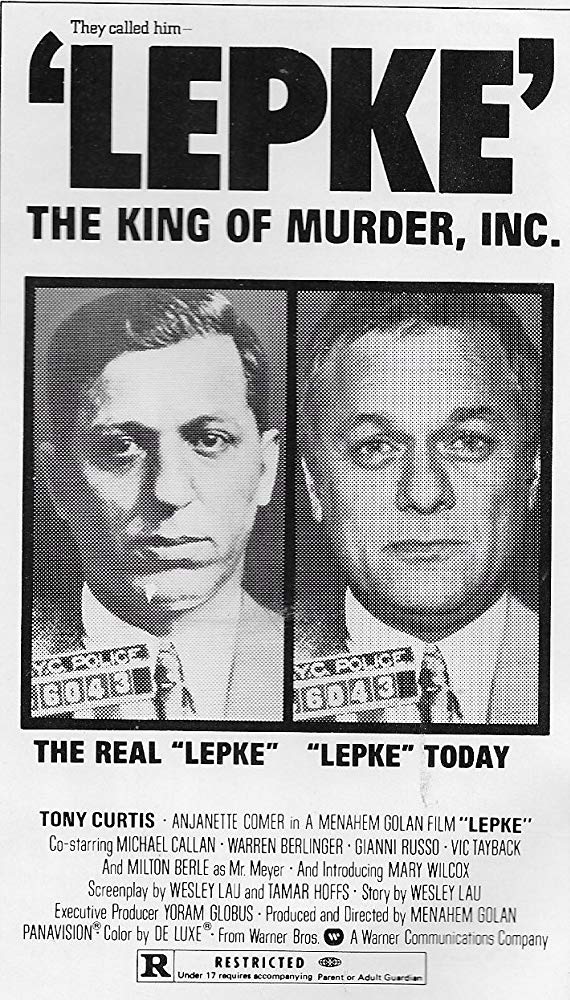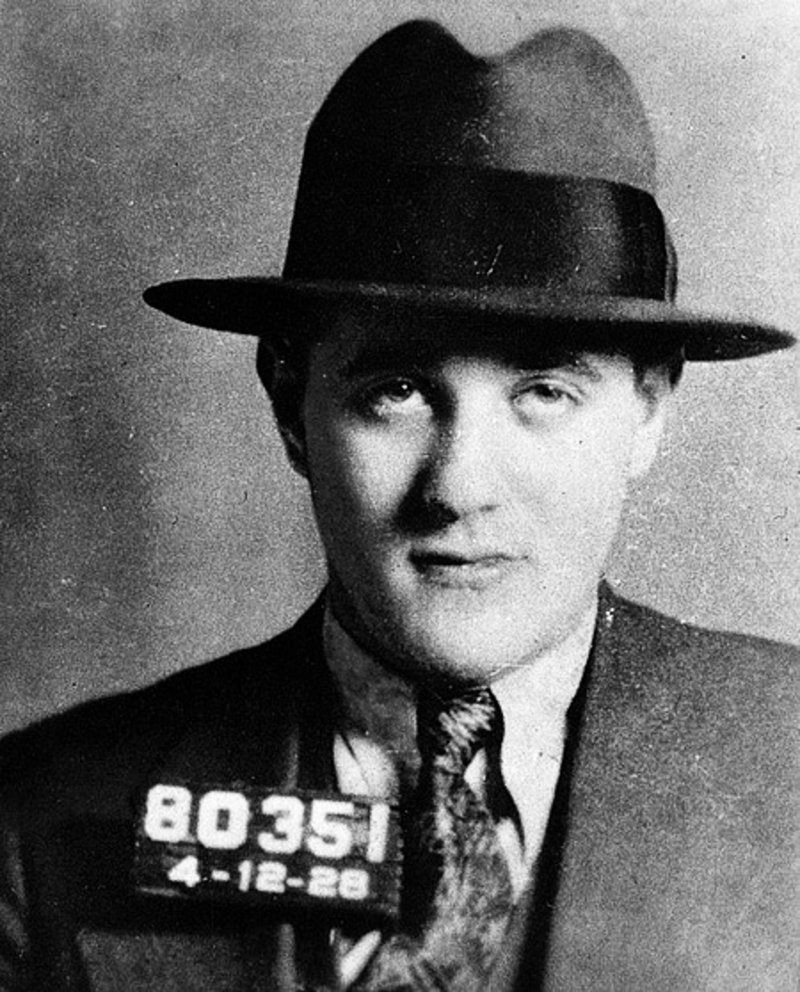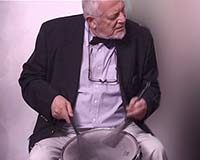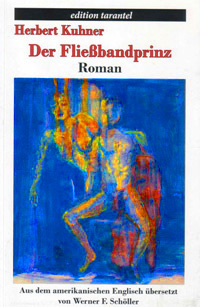The Faithful Husband
“‘Red’ Levine, a cold-blooded contract killer, who was a strict orthodox Jew and therefore did not murder on the Sabbath. Then there was the merciless syndicate boss Louis ‘Lepke’ Buchalter (sic) who loved his mother more than anything and was respected by the family-minded Sicilians.”
– From a PR Text for “Koscher Nostra: Jewish Gangsters in America 1890-1980,” The Jewish Museum, Vienna, November 2003.
In Lepke, starring Tony Curtis and directed by Menahem Golan, Louis “Lepke” Buchhalter, director of “Murder Incorporated” is the best father and husband imaginable. He is happily married and completely faithful to his wife. Lepke’s specialty is, of course, carrying out contracts. You have to eat, have a roof over your head and provide for the wife and kids. And a job is a job.
His number-one hit man is also his best friend. The boss and his toady are dedicated to each other and indeed they remain friends till the end, but they do not walk off into the sunset together.

Somewhere along the line, things go awry. The Italian families decide that the good pater familias, who took care of so many contracts for them, must be sacrificed to the law. They throw Lepke to the lions so that the FBI will get off their tails. It’s no skin of their ass since Lepke isn’t quite Italian. Being Jewish is as close as you can get, but it’s not the real McCoy. His former clients finger him and he has to take it on the lam. At his dingy hideout, a knockout of a gun moll has her sights on him and tempts him. The temptation scenes are done in somber dark tones and with a Biblical ambiance. It brings to mind Putiphar trying to seduce poor little straight-arrow Joseph. Can handsome Tony withstand the wiles of the sexy dame who gives him more than a glance of herself in the nude? David and Bathsheba come to mind. Alas, the handsome family man has a moment of weakness, but then a moment is all that it takes, and he falls prey to the skilled seductress. After all, a man is a man, and even the best of us give in to temptation once in a blue moon. The number of tumbles is limited to one, but a tumble is a tumble and being unfaithful is being unfaithful.
The conjugal transgression is followed by deep remorse, torn lapels and ashes on the noggin. And while our hero is gnashing his teeth for having fallen prone to his lower instincts, his best hit man is taking care of suspected squealers with an ice pick. There’s a shot of him puncturing the neck of a doxy in a slip with the pick. (This gory scene was cut out of the TV version.)
Lepke decides to give himself up, probably as penance for his lapse, and he and the toady both end up on death row. The faithful toady gets what he deserves for the puncturing, and the unfaithful Lepke gets he deserves for the penetration. The two culprits are allowed to meet and embrace before the cell doors clank shut. We know what fate awaits the toady, but we see the repenting Lepke walk the last mile before the lights go out.
Bugsy
Bugsy Siegel was a gangster’s gangster, a spiffy dresser and a raconteur. He hobnobbed with the stars and celebrities. Film gangster George Raft was Bugsy’s real-life friend. In Bugsy Warren Beatty plays Raft’s friend and Annette Benning is Virginia Hill.
The film presents Bugsy as a ruthless killer who could rub someone out from another family without blinking an eye. And if that someone was from his family, he may have flinched before doing the job, but the job was done.
Bugsy was a member of the mob, but he detested fascists. He had Italian connections and made plans to assassinate Mussolini. However, the partisans beat him to the punch by hanging the Duce upside down.
No doubt about it, Bugsy was a gangster, but he was a gangster with vision. He made plans to establish a gambling paradise in the middle of nowhere – nowhere being the Nevada desert.

Bugsy Siegel
Bugsy was a ladies’ man and it was easy-come easy-go until he fell head over heels for gangland moll Virginia Hill. Ginny became his accomplice in the desert scheme – which didn’t make it less hazardous. Ginny was not known as a penny pincher. She liked the bright stuff and the fluffy stuff and all the nice things that money could buy.
Bugsy’s gangster friends thought that he was off his rocker concerning Las Vegas, and they knew he was off his rocker concerning Miss Hill. ilVirginia had charmed him, and he had to use his charm to convince his colleagues of the validity of his venture.
Among Bugsy’s talents was creativity as a chef. There’s a scene when Meyer Lansky and cohorts surprise him at home making an omelette. There he is in the kitchen decked out in and an apron and a chef’s high cap.
He throws in more eggs and serves up an omelette to his guests that is a gastronomical delight. And while his gangster guests sit down to have a bite, he explains the desert idea with conviction, wielding a wooden cooking spoon for emphasis.
The Lansky and cohorts are skeptical, but nevertheless they invest. Bugsy is industrious and a hard worker, and things begin to happen. But of course there are snags. Bugsy isn’t very frugal, and with a little help from Ginny, he finds himself a couple of million in the red. That would be chickenfeed today, but in the Forties it was a fortune.
As we know, the mob doesn’t handle debtors with kid gloves. Bugsy gets a stay of execution while Ginny goes to Paris on a spending spree. There’s another stay, but when he can’t come up with what he owes, the mob’s patience comes to an end. The ambitious gangster is found riddled with bullets in Hill’s Hollywood house. I remember seeing photos of his bloody body in the tabloids back ’47 when I was a kid.
When Ginny gets the news of Bugsy’s demise in Paris she interrupts what she’s doing to enter a period of mourning. After she discards her black attire, she hangs around Paris for a while, and then takes the chance of coming back home. For some reason, the mob doesn’t send her to join Bugsy.
The Kefauver Committee beckons and Virginia goes onstage to become the star of the hearings. When the stodgy senator K. asks her why so many big-time hoods had an itch for her, she replies that she is the number one in the country in the oral arts. Apparently, the mob had let off the financial hook due to her singular talents or talent.
Virginia carried on for decades before dying under mysterious circumstances in, of all places, Salzburg, Austria.
But back to Bugsy’s scheme: Since the desert venture is so far advanced, the mob decides to take a chance on it, rather than scrap it.
And we know the rest. The investment more than paid off in the end. The paltry millions brought in countless billions and billions.
Our American gangsters aren’t like those of other nations. They’re not simply hoods and killers. They are men with foresight who dream the American dream and can turn it into reality.
And indeed Las Vegas with its gambling palaces, luxury hotels and theme parks has become an integral part of Americana. It stands today as a monument to one gangster’s vision and to gangland’s prudence. But that prudence had limitations. The mob rubbed the city’s founder out.
to be continued . . .
– Herbert Kuhner











 Users Today : 109
Users Today : 109 Users Yesterday : 107
Users Yesterday : 107 This Month : 505
This Month : 505 This Year : 7882
This Year : 7882 Total Users : 229018
Total Users : 229018 Views Today : 201
Views Today : 201 Total views : 1964714
Total views : 1964714 Who's Online : 1
Who's Online : 1




